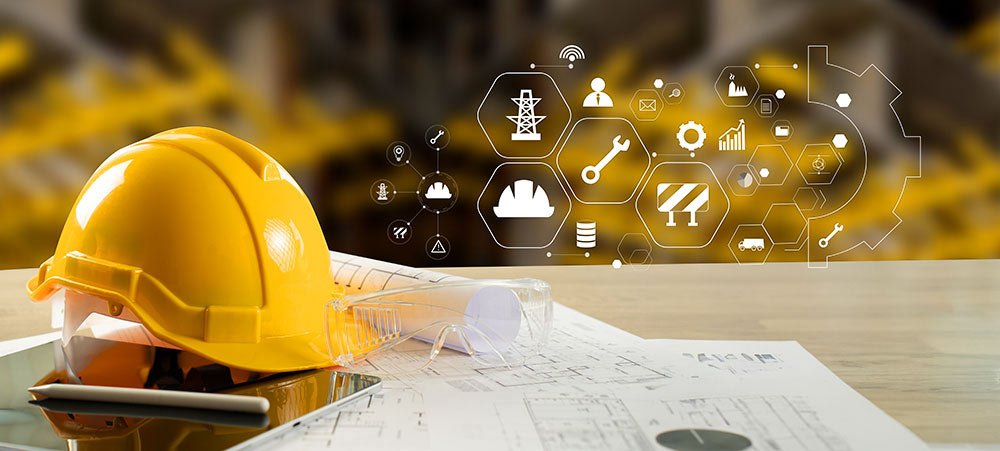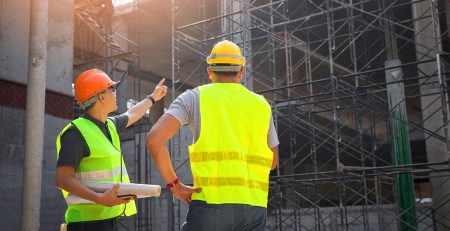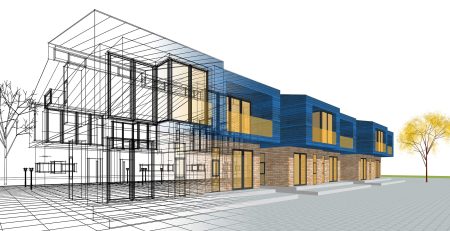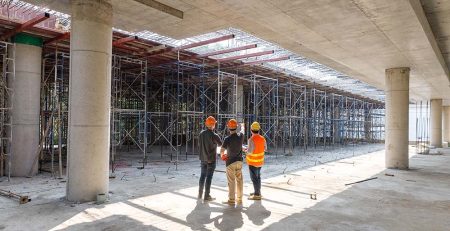What’s the Role of AI? Technology’s Impact on Construction
Imagine a construction site where tasks are managed by intelligent systems, drones survey the area, and robots assist in building structures. Welcome to the future of construction, driven by artificial intelligence (AI). The construction industry, traditionally seen as labor-intensive and manual, is undergoing a digital transformation. AI is at the forefront of this revolution, reshaping how buildings are designed, constructed, and maintained. This blog explores the profound impact of AI on the construction industry, highlighting its benefits, applications, and future trends.
Understanding AI and Its Applications in Construction
Artificial Intelligence, often abbreviated as AI, refers to the simulation of human intelligence in machines. These systems are programmed to think, learn, and make decisions, much like a human would. In the context of construction, AI encompasses a variety of technologies, including machine learning, robotics, and data analytics, which collectively enhance various construction processes.
AI in Construction
AI is making waves in the construction industry by streamlining operations and improving efficiency. From automating mundane tasks to providing predictive insights, AI applications are vast and varied. The benefits include reduced costs, improved safety, and increased productivity, making AI an invaluable tool for modern construction projects.
AI in Design and Planning
Generative Design
Generative design is a cutting-edge AI application where algorithms generate optimized building designs based on specific parameters and constraints. This approach allows for countless design variations to be explored quickly, ensuring the most efficient and cost-effective solutions are chosen. The result is innovative designs that save time and resources while pushing the boundaries of architectural creativity.
BIM Integration
Building Information Modeling (BIM) has been a game-changer in construction design and planning. When enhanced with AI, BIM becomes even more powerful. AI algorithms analyze vast amounts of data within BIM to provide deeper insights and predictive analytics. This leads to better project planning, reduced errors, and enhanced overall project outcomes.
AI in Construction Site Monitoring
Drones and AI
Drones equipped with AI are revolutionizing site inspections and monitoring. These drones can capture high-resolution images and videos, which AI algorithms then analyze for various parameters, such as progress tracking, safety compliance, and quality control. This not only improves accuracy but also significantly enhances efficiency and safety on construction sites.
AI in Quality Control and Maintenance
Defect Detection
Ensuring quality control during construction is critical, and AI is proving to be a formidable ally in this domain. AI-driven inspections use machine learning algorithms to detect defects and inconsistencies in real-time, ensuring that issues are addressed promptly. Technologies like computer vision enable these systems to maintain high standards of quality assurance.
Predictive Maintenance
Maintenance is another area where AI shines. Predictive maintenance leverages AI to foresee equipment failures before they occur. By analyzing data from sensors and other monitoring devices, AI can predict when maintenance is needed, reducing downtime and extending the lifespan of equipment. This proactive approach saves costs and enhances operational efficiency.
Future Trends and Innovations in AI for Construction
The future of AI in construction is bright, with emerging technologies promising even greater advancements. Innovations such as autonomous construction vehicles, AI-driven project management software, and advanced robotics are on the horizon. These developments are set to further transform the industry, making construction projects faster, safer, and more cost-effective.
Challenges and Considerations
While the benefits of AI in construction are clear, integrating these technologies isn’t without challenges. Common issues include the high initial cost of implementation, the need for specialized skills, and concerns around data privacy and ethics. Addressing these challenges is crucial for the successful adoption of AI in construction.
Conclusion
AI is undoubtedly revolutionizing the construction industry. From design and planning to site monitoring and maintenance, AI technologies are enhancing efficiency, safety, and innovation. Embracing AI in construction isn’t just about keeping up with trends—it’s about staying ahead and reaping the benefits of cutting-edge technology.
Ready to explore how AI can transform your construction projects? Contact us for AI integration solutions and schedule a consultation with our experts to discuss how AI can be implemented in your projects. Let’s build the future together, one smart decision at a time.











